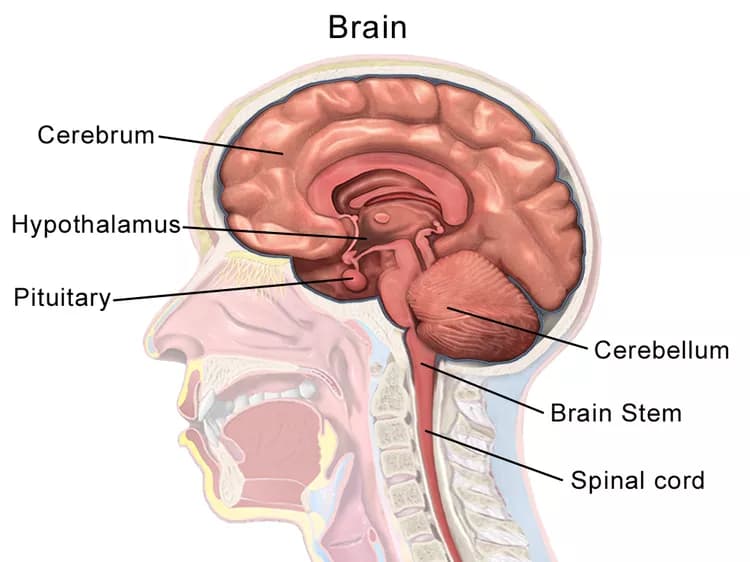
Brain Locations That Control Diabetes Drugs’ Weight Loss Effects Examined
Certain type 2 diabetes drugs promote weight loss, but how they do this remains poorly understood. Insight into how these drugs work in the body -- and especially the brain -- could help create new drugs that effectively control body weight. In an important advance on that front, a new study from Sanford Burnham Prebys Medical Discovery Institute (SBP) shows that these drugs, called glucagon-like peptide-1 receptor agonists (GLP-1RAs), reduce body mass by targeting a different part of the brain than previously thought.
"GLP-1RAs cause people to eat less, and their weight loss effects were thought to rely on the hypothalamus, a part of the brain that controls appetite," says Julio Ayala, Ph.D., associate professor at SBP and senior author of the study, published in the journal Diabetes. "There was some evidence to support this notion, but it hadn't been directly tested. In this study, we show that it's not the case -- other regions of the brain must be involved in weight loss caused by GLP-1RAs."
Though the search for weight loss drugs has been intense, there are very few effective drugs on the market. One GLP-1RA has been recently approved to treat obesity in non-diabetics, but patients generally only lose a small percentage of their body weight. Another drawback of GLP-1RAs is that they are given by injection twice a day, and some studies suggest that they increase the risk of pancreatitis.
"Better treatments for obesity would make a huge impact on public health," adds Ayala. "GLP-1RAs are a tool towards that end -- if we can understand how they lead to weight loss, we may be able to design drugs that act on just the right parts of the brain, or modify GLP-1RAs to be more effective."
GLP-1RAs include liraglutide (brand name Victoza), exenatide (Byetta), and albiglutide (Tanzeum). They mimic the hormone GLP-1, which is normally released from the intestine following a meal. GLP-1 acts on the pancreas to trigger release of insulin and lower blood sugar, on the stomach to slow digestion, and on the brain to reduce food consumption, among other effects.
Ayala's team examined whether actions in the hypothalamus were essential for GLP-1RAs to induce weight loss using mice lacking GLP-1 receptors in that region of the brain. In these mice, GLP-1RAs still reduce food intake and lower body mass, indicating that the hypothalamus is not the only part of the brain required for the drugs' effects on weight.
"Our findings show that we still have work to do to understand what GLP-1RAs are doing in the brain," commented Ayala. "But we know where to start. We're already looking at their effects on brain regions that are involved in the reward associated with eating, such as the ventral tegmental area and the nucleus accumbens."
"Though the idea that the hypothalamus was central to GLP-1RAs' effects on eating had become accepted in the field, in a way it's not surprising that it turns out to be more complicated," Ayala added. "Feeding is a complex behavior that's controlled by a complex organ, so these drugs likely modulate more than just one brain region -- they probably impact entire circuits. That's where our research is headed."
This research was performed in collaboration with scientists at the University of Pennsylvania, the University of Michigan Health System, and the Lunenfeld-Tanenbaum Research Institute at the University of Toronto. Funding was provided by the National Institutes of Health and the Canadian Institutes of Health Research.
Materials provided by Sanford Burnham Prebys Medical Discovery Institute. Note: Content may be edited for style and length.
Disclaimer: DoveMed is not responsible for the adapted accuracy of news releases posted to DoveMed by contributing universities and institutions.
Primary Resource:
Burmeister, M. A., Ayala, J. E., Smouse, H., Landivar-Rocha, A., Brown, J. D., Drucker, D. J., ... & Ayala, J. E. (2016). The Hypothalamic Glucagon-Like Peptide-1 (GLP-1) Receptor (GLP-1R) is Sufficient but Not Necessary for the Regulation of Energy Balance and Glucose Homeostasis in Mice. Diabetes, db161102. DOI: 10.2337/db16-1102
Related Articles
Test Your Knowledge
Asked by users
Related Centers
Related Specialties
Related Physicians
Related Procedures
Related Resources
Join DoveHubs
and connect with fellow professionals

0 Comments
Please log in to post a comment.